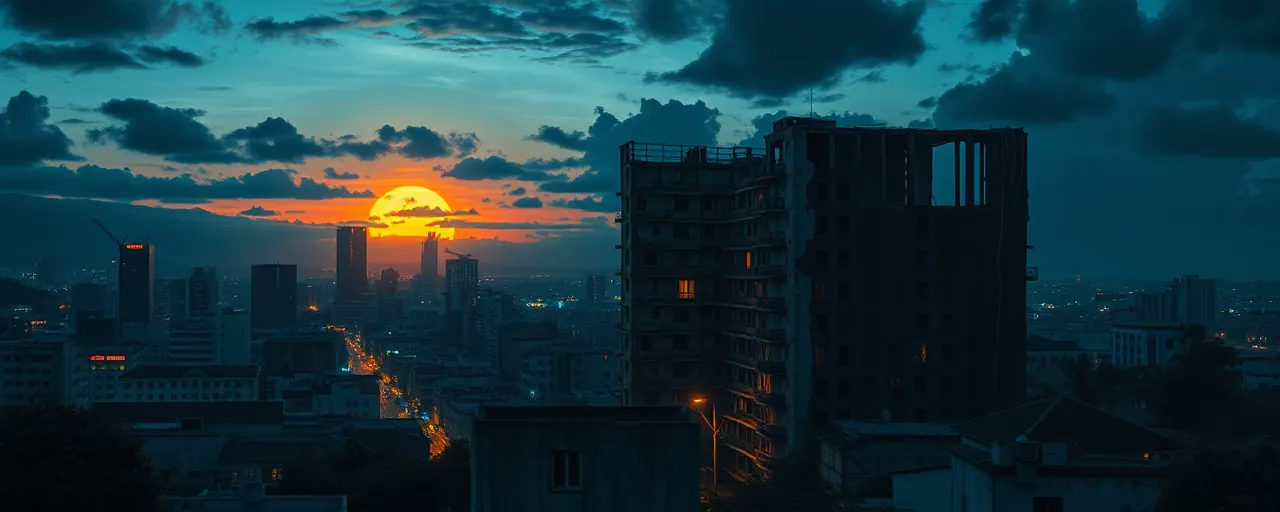A Night of Joy Turned to Sorrow
In Santo Domingo, the pulsing heart of Dominican nightlife, Jet Set nightclub was a beacon of celebration. Locals and tourists, including American visitors, filled its dance floors, swaying to merengue and bachata under glittering lights. Then, in an instant, the roof caved in. Over 200 lives were lost, among them U.S. citizens whose families now grapple with unimaginable grief. This wasn’t just a tragedy; it was a preventable failure that lays bare the fragility of infrastructure in places we assume are safe.
The collapse didn’t come out of nowhere. It’s the kind of disaster that festers in the gaps between ambition and accountability. For too long, the Dominican Republic’s economic vibrancy has outpaced its ability to enforce the rules meant to protect people. Nightclubs like Jet Set fuel tourism and local pride, but when corners are cut on safety, the cost is measured in lives. As Americans mourn alongside Dominicans, the question isn’t just how this happened, but what we owe each other to ensure it never happens again.
Advocates for global equity have long argued that wealthier nations, like the United States, bear a responsibility to help allies strengthen their foundations, literally and figuratively. The Biden administration championed this approach, pouring resources into climate resilience and education abroad. Yet, under new leadership, there’s a risk of retreating from such commitments. The Jet Set tragedy demands we double down, not pull back, on supporting our neighbors.
The Cracks Beneath the Surface
The Dominican Republic’s building regulations, overseen by the Ministry of Public Works, aim high. Seismic standards, inspired by global frameworks, are meant to guard against earthquakes and hurricanes. But enforcement is another story. Informal construction dots Santo Domingo’s skyline, and inspections often lag behind rapid urban growth. The Jet Set collapse, killing over 200, exposed how unevenly these rules are applied. Nightclubs, symbols of cultural pride, aren’t exempt from the oversight failures plaguing the nation’s infrastructure.
Puerto Rico’s response was a bright spot in the darkness. Firefighters and forensic experts from the island arrived swiftly, combing through rubble to save lives and identify victims. Their work builds on decades of mutual aid, like when Hurricane Maria battered both regions in 2017. This kind of regional solidarity shows what’s possible when communities prioritize shared humanity over borders. Yet, it also highlights what’s missing: sustained U.S. investment to prevent these crises in the first place.
Some argue that local governments alone should bear the burden of safety compliance. They point to Dominican authorities’ quick response post-collapse as proof of self-sufficiency. But this ignores the broader context. Resource-strapped nations face pressures that wealthier ones don’t. The U.S. has poured millions into Dominican education and clean energy through USAID, fostering resilience. Scaling back such aid, as some policymakers now hint, would leave vulnerabilities like Jet Set’s unchecked, risking more lives, including American ones.
History shows what happens when oversight falters. Hurricane Georges in 1998 left thousands homeless across the Caribbean, exposing weak infrastructure. Today’s disasters, worsened by climate change, demand proactive partnership, not finger-pointing. The U.S. Development Finance Corporation’s $200 million in loans for Dominican small businesses is a start, but it’s not enough. Building codes need teeth, and that requires funding, training, and accountability, backed by American support.
For Americans abroad, the stakes are personal. In 2024, FEMA logged 90 major U.S. disasters, a reminder of nature’s growing fury. Travelers face those same risks in places like Santo Domingo, where a night out can turn deadly without warning. Supporting stronger infrastructure isn’t charity; it’s a safeguard for our own people, too.
A Call for Shared Responsibility
Santo Domingo’s nightlife isn’t just a tourist draw; it’s a cultural lifeline. Venues like Jet Set employ hundreds, from bartenders to musicians, while showcasing Dominican traditions to the world. But their value means nothing if they’re not safe. The collapse sparked calls for stricter regulations, yet change stalls without resources. The U.S., with its history of partnership, has a unique role to play. Programs like the Energy Transition Accelerator could expand to include infrastructure resilience, blending economic and safety goals.
Opponents of foreign aid often frame it as a handout, insisting nations like the Dominican Republic stand on their own. This view sidesteps reality. Global challenges, from climate-driven disasters to crumbling buildings, don’t respect borders. When U.S. citizens die abroad, it’s a stark reminder that isolationism doesn’t protect us. Collaboration, like the Open Skies Agreement boosting Dominican tourism, proves mutual benefit works. Why not apply that logic to safety?
The ties between our nations run deep, forged through shared struggles and triumphs. From the Dominican Republic’s fight for independence to joint efforts against drug trafficking, we’ve built a partnership rooted in trust. Now, that trust demands action. More USAID funding for inspections, training for builders, and disaster preparedness could save countless lives. It’s not about imposing solutions; it’s about empowering a neighbor to thrive.
Looking Forward, Not Back
The Jet Set tragedy is a wound that won’t heal quickly. Families, both Dominican and American, deserve answers and justice. But beyond accountability, we need prevention. The United States can lead by example, extending a hand to strengthen the Dominican Republic’s ability to protect its people. This isn’t just about one nightclub; it’s about a future where no one fears the roof will fall.
As we mourn, let’s commit to a world where safety isn’t a luxury. The Biden years showed what’s possible when empathy guides policy. Now, with new voices at the helm, we must demand that same urgency. Lives depend on it, and our shared humanity hangs in the balance.
